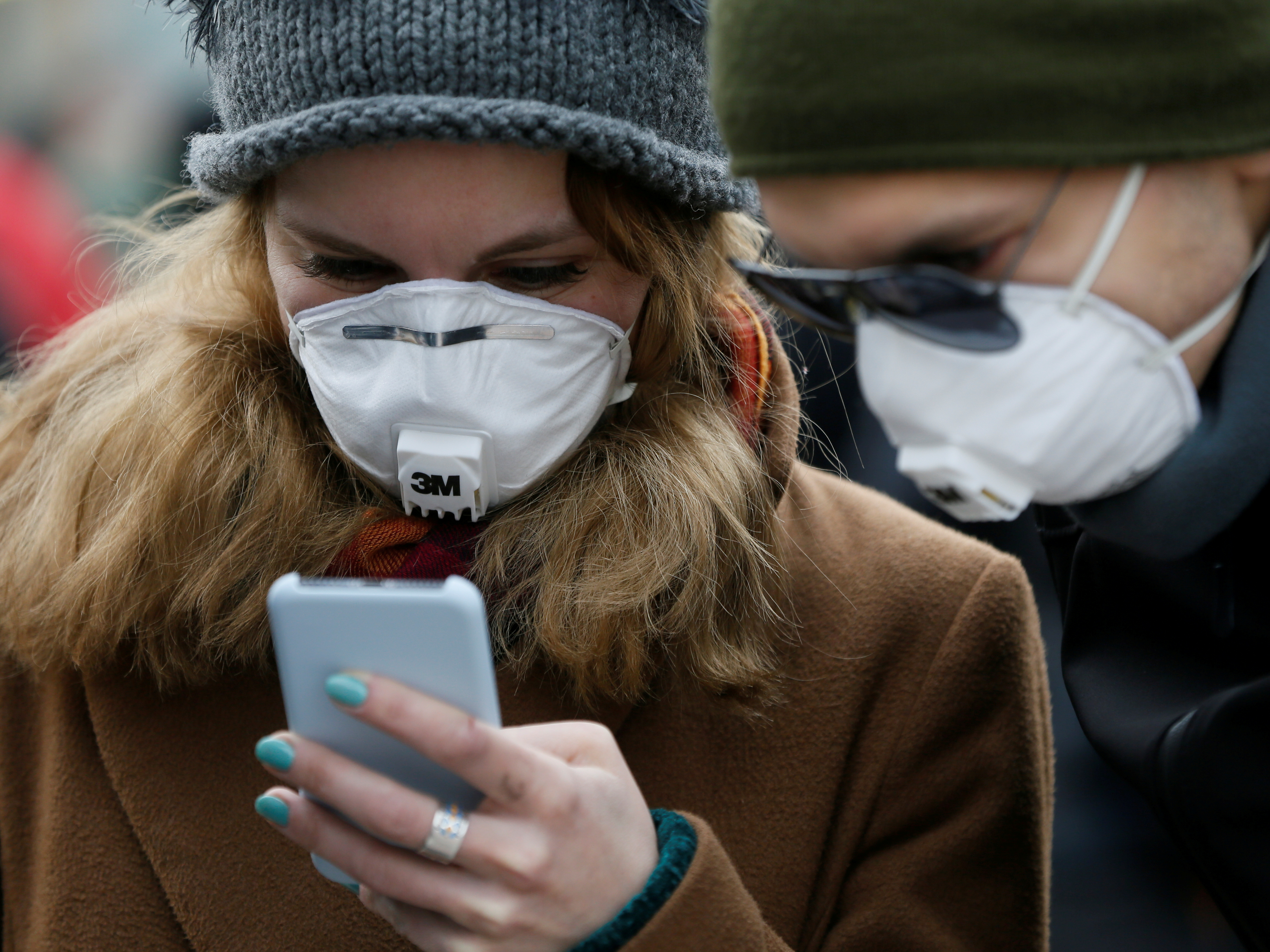- Apple and Google are building contact tracing technology that uses Bluetooth in people’s smartphones to track the spread of COVID-19 – and it’s being embraced by a growing list of countries worldwide.
- A handful of European countries have announced they’ll use tech from Apple and Google, but others like France, the UK, and several US states favor government-run contact tracing technology.
- Apple and Google’s tech is meant to be integrated with government apps – but many governments’ contact tracing tech is incompatible with privacy promises made by Apple and Google.
- Apple and Google’s technology has an advantage: It’s much easier to deploy on iPhone and Android than other government-run apps.
- Visit Business Insider’s homepage for more stories.
Apple and Google are partnering to build contact tracing tech that uses people’s smartphones to track the spread of COVID-19 – and while the technology won’t be released until May, governments across the world are already committing to use it.
The technology from Apple and Google would harness Bluetooth in people’s smartphones to detect when they come in close contact with someone who’s tested positive for coronavirus. It’s meant to supplement the work of human contact tracers, which are already being hired by government health agencies across the US.
But multiple countries and at least three US states were already building their own contact tracing apps, and will now be forced to choose whether to abandon those projects in favor of the technology from Apple and Google. In Europe, at least four countries have embraced Apple and Google’s technology, in part because Apple refused to make changes to iPhone settings that would have made third-party contact tracing apps run better.
The debate over which contact tracing technology to use hinges on questions of privacy and data ownership. Here’s a breakdown of the decision faced by governments across the globe.
The biggest difference between contact tracing apps built by governments and Apple and Google's tech is how people's data is stored.
Most government-developed contact tracing apps would store people's contact information and COVID-19 status on a central, government-owned server. In Europe, France and the UK are both still advocating for such a centralized system.
Meanwhile, the "decentralized" technology from Google and Apple only stores information on individuals' phones, unless they opt to send it to health authorities.
Some government apps would also use GPS data. Apple and Google's tech does not.
In addition to Bluetooth, some government apps - including apps being deployed by North and South Dakota and Utah - would rely on anonymized GPS data to track the specific location of COVID-19 outbreaks. The contact tracing tech from Apple and Google doesn't track people's locations at all.
Lawmakers in those states say location data is crucial as it helps them understand what type of establishments are most in need of targeted social distancing orders.
"Is it happening in a park, a Costco or a Walmart? They are trying to make policy decisions that move our economy from a broad-based 'everything is shut down' to a more targeted approach," Jared Allgood, chief strategy officer for Twenty - the startup which developed Utah's app - told Reuters Friday.
Unlike the new tech from Apple and Google, it's more difficult to get third-party Bluetooth apps to work on iPhones — and Apple has signaled that it's unwilling to change that.
iPhones' software prevents them from making Bluetooth contact with other devices unless they're unlocked with a Bluetooth app open. That means people using a government-developed contact tracing app would need to leave their phone unlocked with the app running at all times for it to work.
Meanwhile, the tech being developed by Apple and Google would run in the background of people's phones once they opt in, and wouldn't even require them to download an app.
Multiple European governments asked Apple to update iOS settings to allow for third-party contact tracing apps, but so far the company hasn't budged. Germany said on Friday that it would abandon its own app in favor of contact tracing technology from Apple and Google for this reason.
Apple and Google could still make their technology compatible with 3rd-party apps, with caveats.
Apple and Google have pitched their new contact tracing technology as a tool that can be integrated with health authorities' apps - but the companies have also vowed that their technology will not use GPS tracking.
As such, it's not clear whether the contact tracing tool from Apple and Google will support apps like those being rolled out in North and South Dakota and Utah. The two companies told Reuters Friday that they haven't yet decided how to proceed.
The tech offered by Apple and Google has one key advantage: a faster rollout to the maximum number of people.
For peer-to-peer contact tracing apps to work, they need to amass a critical number of users.
Governments have seen mixed success at getting people to participate. A Bluetooth contact tracing app in Singapore struggled to garner enough users to be functional in the first month of its existence. More recently, an Australian app promoted heavily by the government was downloaded over 1 million times within hours of its release on Sunday.
Apple and Google have teased features that could quickly expand the number of users: For one, the technology can be pushed to users' phones without them needing to download an app. The tech could also notify people that they came in contact with COVID-19 before they've even downloaded any public health apps, giving them an incentive to opt in.

